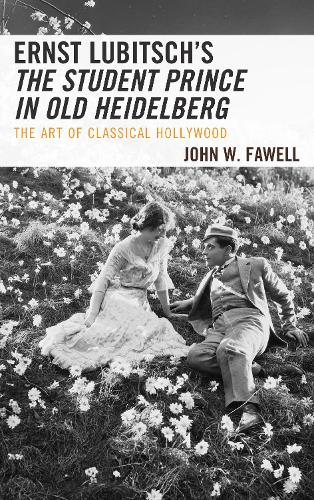
Ernst Lubitsch's The Student Prince in Old Heidelberg: The Art of Classical Hollywood
(Hardback)
Publishing Details
Ernst Lubitsch's The Student Prince in Old Heidelberg: The Art of Classical Hollywood
By (Author) John W. Fawell
Bloomsbury Publishing PLC
Lexington Books
20th June 2018
United States
Classifications
Professional and Scholarly
Non Fiction
Communication studies
Media studies
791.4372
Physical Properties
Hardback
200
Width 157mm, Height 241mm, Spine 18mm
426g
Description
This book takes a close look at a film that has heretofore been significantly undervalued by film scholars: Ernst Lubitschs The Student Prince in Old Heidelberg. In so doing, it not only advocates for the elevation of the film within the canon of Lubitschs films but also for an appreciation of the certain kind of filmmaking that it representsone favored in the classical era of Hollywood which is characterized by aesthetics, meticulous structure, and delicate understatement over explicit content or social relevance. This book argues that The Student Prince in Old Heidelberg has perhaps been neglected because of the tendency in contemporary film criticism to devalue films that are not overtly serious in their subject matter. The Student Prince in Old Heidelberg represents a master class in classical Hollywood technique, a kind of filmmaking that is characterized by charm, beauty, and elegant form and which chooses not to express its ideas explicitly but to encase them in the substance, structure, and very experience of the film.
Reviews
Lubitsch cant wait! clamor fans and scholars of this consummate and delicate director as they ask for renewed appreciation of his resonant art. John Fawell answers their clarion call with an analysis that is eloquent and elegant, ever so attuned to the soft and subtle quietudes of Lubitschs art as exhibited in the key film The Student Prince in Old Heidelberg. This is a lovely and loving study that well shows Lubitschs pride of place in Hollywood silent cinema. -- Dana Polan, New York University, author of Julia Child's The French Chef
A lovingly detailed celebration of a neglected silent film that is also a ringing defense of the marriage between Ernst Lubitschs unerringly delicate touch and the much-maligned MGM studio styleand, more generally, of a whole approach to filmmaking and filmgoing that has largely fallen out of favor, one that treasures simplicity, romance, sincerity, elegance, grace, sentiment, and apparently artless art. Can a revival of The Student Prince in Old Heidelberg, and indeed of all these virtues, be far behind -- Thomas M. Leitch, University of Delaware
There is no more generous or insightful a guide to the mystery and artistry of Hollywood than John W. Fawell. His previous work has explored how Hollywoods broad-stroke storytelling authorized an elaboration of sentiment and style into realms of true seriousness, even in films typically understood as frivolous. In this study of Ernst Lubitschs The Student Prince in Old Heidelberg, Fawell offers further evidence on Hollywoods behalf by showing, in careful and illuminating detail, how Lubitsch treated an already well-known story, on the risky but rewarding premise that a silent film better illustrates the musical aesthetic of Hollywood than subsequent talkies. Lubitsch scholars will be grateful for Fawells animated reading of The Student Prince, but his repeated allusions to other films and filmmakersCapra, Chaplin, Dryer, Eisenstein, Ford, Godard, Hawks, Hitchcock, Sturges, Tati, Welles, Wilderwill make this book attractive to a broad readership. -- Leland Poague, Iowa State University
John Fawell's criticism is comprehensive and refreshingly reader-friendly. While considering various angles, his work presents a unified analysis that appeals to experts and newcomers. With Lubitschs The Student Prince in Old Heidelberg, Fawell delivers the definitive reading of a rediscovered classic, as probing as it is heartfelt. -- Matthew Sorrento, Rutgers University, Camden
Author Bio
John Fawell is professor of humanities at Boston University.
